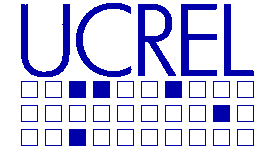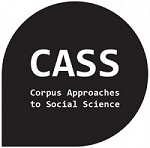

Corpora and Discourse International Conference
Lancaster University, UK – 22nd to 24th June 2018
The fourth international Corpora and Discourse conference (CAD 2018) will be held at Lancaster University from Friday 22nd June to Sunday 24th June 2018. The conference will be hosted by the ESRC Centre for Corpus Approaches to Social Science (CASS).
Click here to download the Call for Papers
Call for papers
Corpus-Assisted Discourse Studies (CADS) investigates the employment of corpus techniques to examine how language is used in social contexts for communicative purposes. Corpus linguistics is a powerful methodology – a way of using computers to assist the analysis of language so that regularities among many millions of words can be quickly and accurately identified. We take discourse to broadly mean “language in use” (Brown and Yule 1983), although some conceptualisations of discourse which are also relevant for this conference are:
- semiotic resources used by people to carry out practices that shape their professional, institutional and social worlds
- specific genres or registers of language use
- ways of looking at the world, of constructing objects and concepts in certain ways, of representing reality in other words, with attendant consequences for power relations
We welcome proposals on the corpus-assisted discourse analysis of, for instance:
- discourse organisation
- political, institutional and media texts, including social media
- social science and social policy issues
- cultural and cross-cultural topics
- discourse implications in translation studies
- discourse effects in literary texts
and, indeed, of any study of discourse where the three corpus linguistics virtues of Collecting, Counting and Collating are deemed to have enabled, enhanced and even perhaps complicated the data analysis. Comparative studies of different discourse types or different periods of time are also highly relevant.
We also welcome papers which include reflective considerations on methodological and philosophical issues pertaining to CADS. These might include:
- What are the overall objectives of CADS research(ers); has its focus altered over the years and is it likely to alter in the future?
- What counts as best practice and are there any practices best avoided?
- What issues exist around data collection and analysis (ethics, copyright) and how can they be approached?
- To what extent should researcher’s political views drive CADS research?
- What counts as evidence and how much evidence do we need to support the claims we make and evaluate those made by others?
- What counts as an ‘explanation’ and how do we evaluate co-existing or competing explanations?
- Corpus analysis is only one aspect of CADS. What tend to be other useful sources of information, and how are they best integrated into the research project?
- How can CADS incorporate multimodal analyses (e.g. spoken and visual data) into its research program?
- How can CADS research make a meaningful impact on the real world?
- what are the repercussions of CADS on theories of language (which may include theories of discourse structure and function, sociolinguistics, stylistics and so on)?
- How can new tools and techniques of analysis improve current CADS research?
Follow @cadconf2018 – #cadconf2018